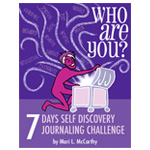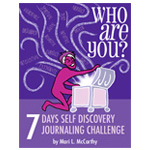An injury -- whether it’s a bad back, a broken finger, a torn ACL or a recurring muscle spasm -- takes a heavy toll on you, both physically and mentally. You may have to cope with sleepless nights because of pain or struggle to do everyday activities because of your body’s limitations. Just as challenging (if not more so) is having to deal with the emotional side of injury -- feelings of frustration, anger, helplessness or dependence.
It’s a lot to handle, and you shouldn’t have to handle it alone. Journal writing is a way to process what you are feeling and take control of your own healing.
Writing Therapy for Physical Healing
Note: If your injury prevents you from writing, there are a variety of options you can explore: practicing writing with your non-dominant hand, enlisting the help of a trusted friend to transcribe for you or recording your thoughts on a recording device. Learning how to journal in a way that works best for you is part of the writing therapy process!
1. Start by finding a place and a position where you are comfortable and check in with your physical well being. How does your body feel right now? What hurts? What feels weak? What feels strong? What isn’t working the way you want it to? What is running smoothly? Write honestly about your physical state at this moment, and ask questions that have been on your mind.
2. Now focus on your mental and emotional well being. What emotions are you experiencing at the moment? What thoughts or feelings have been preoccupying you? What are your main struggles and successes? What words do you want to scream at your injury? What most comforts you during trying moments?
3. Reread what you wrote and try to sum up what you are experiencing in just a sentence or two. What can you take away from this? What does it tell you about what you need, physically or emotionally? What do you still have control over?
4. Repeat this writing therapy exercise daily throughout your recovery, noting any trends and changes as you go. Note new ways you come up for managing your body parts. Your daily journal writing will point you to new ideas and ways of healing your body, your spirit and your soul.
I'll bet you find that you don't need tons and tons of pain pills! Journaling through your injury will help you become your own primary care provider and non-drug dispensing healthcare professional, I'm certain of it! Let us know. WriteON!
When you're injured, it's a good time to explore yourself further and discover how and why your thinking might be inviting disease. Try the 'Who Are You? journaling eworkbook and find some answers!



Leave Comment